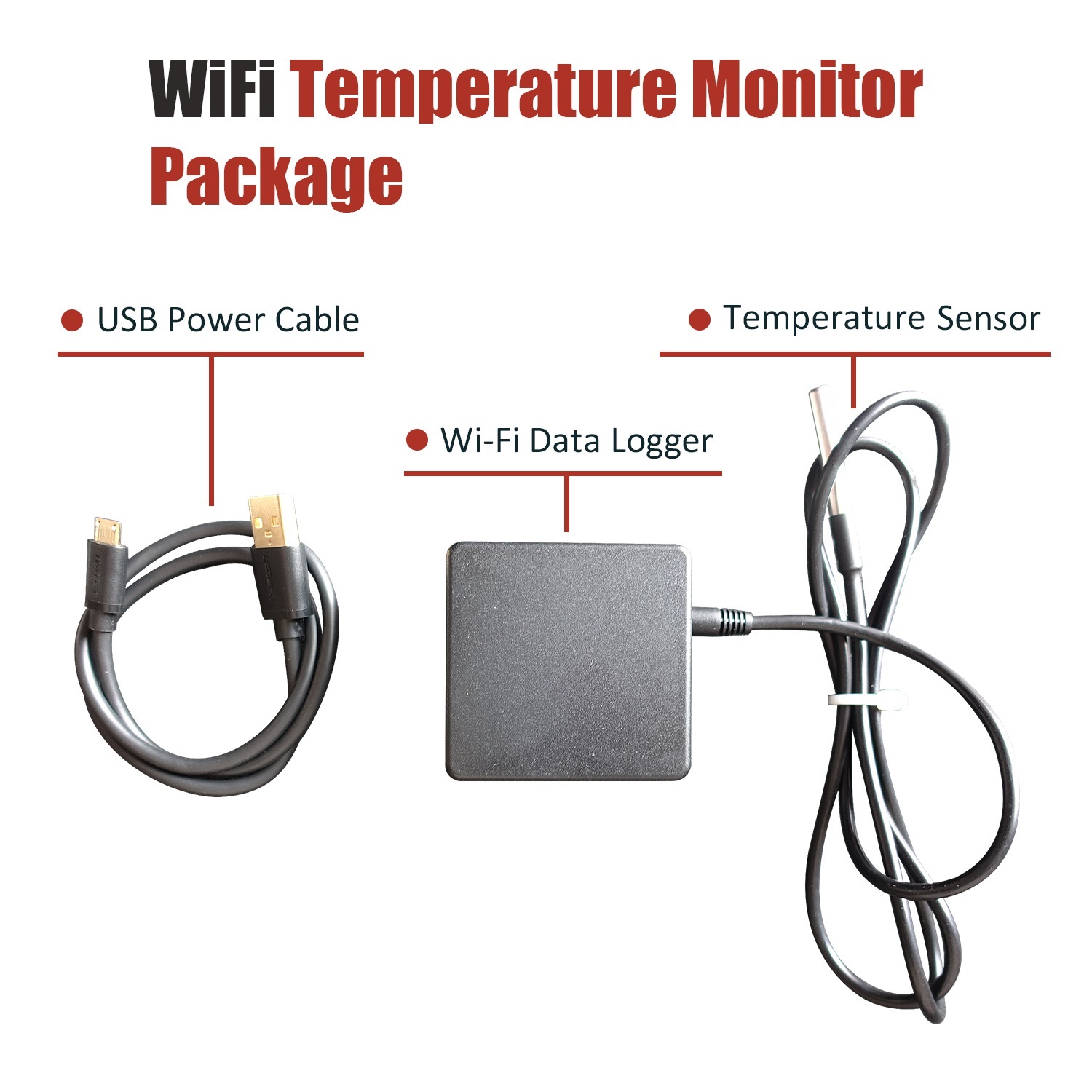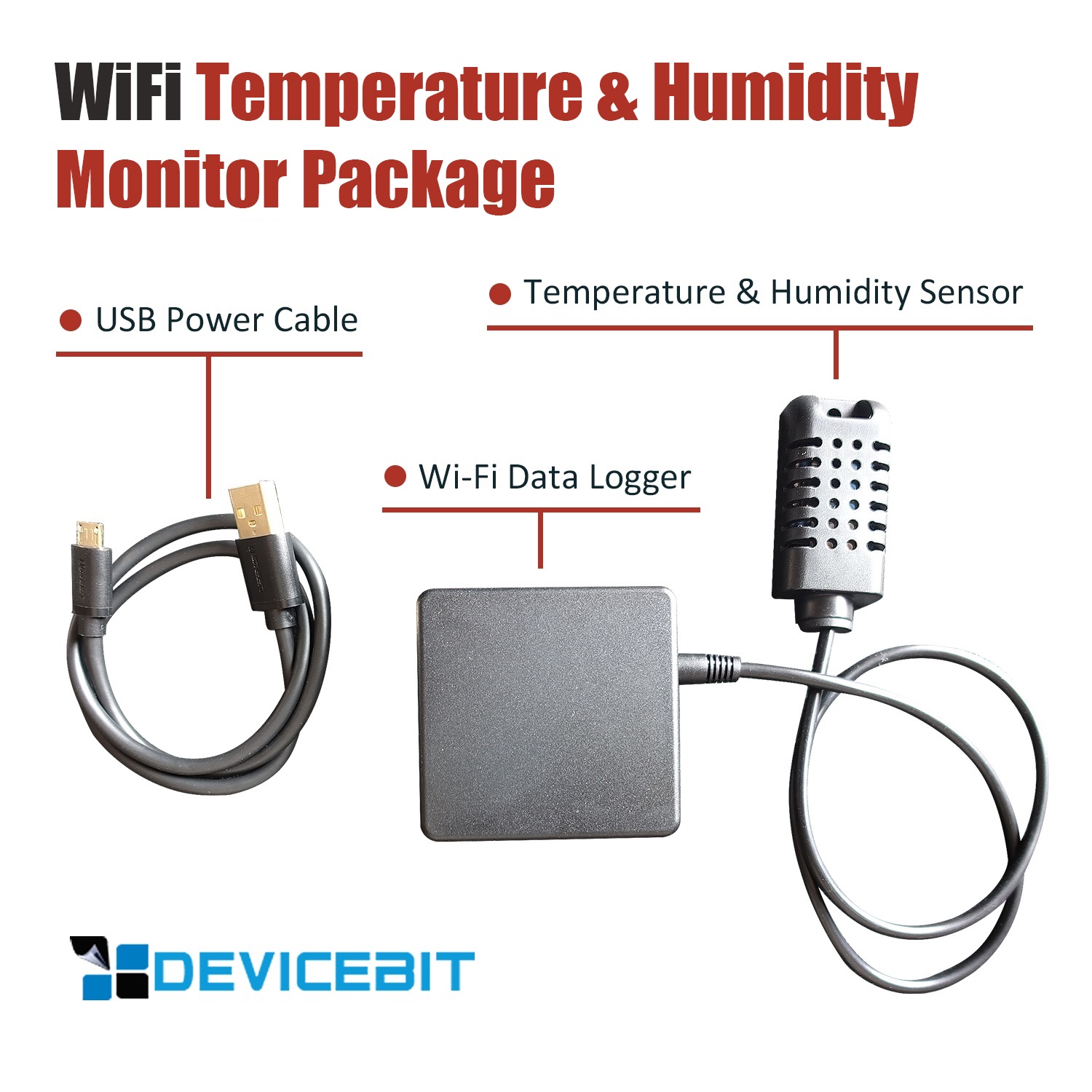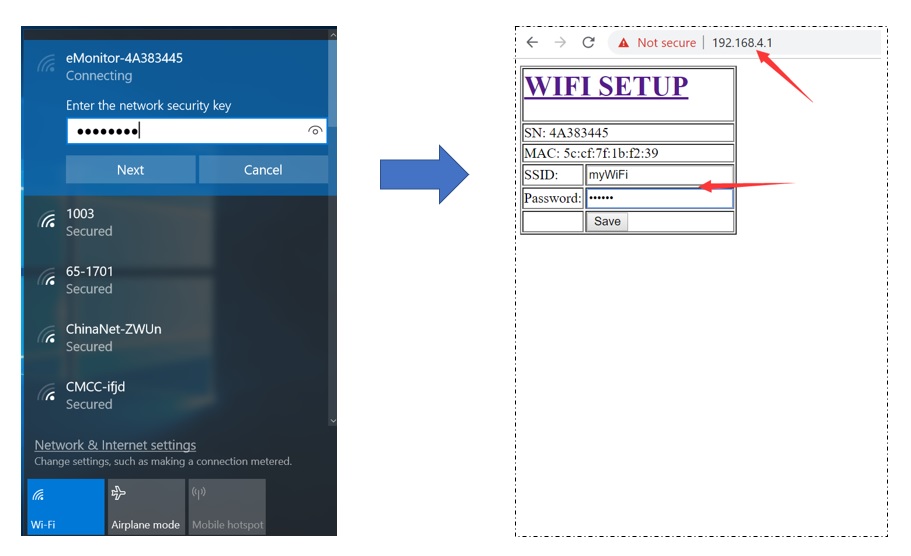## 1. Hardware Package
Package 1 (Temperature only):

Package 2 (Temperature and Humidity):

## 2. Wi-Fi Setup
Plug the sensor cable and USB power cable and power on the monitor. Next you need to setup the Wi-Fi configuration to connect the monitor to the Wi-Fi network of your home router.

**Step1**, Use your smart device's Wi-Fi connection setup, connect to the iMeter's network, which will show up as eMonitor_xxxxxxxx (xxxxxxxx is unique device SN). The password is 12345678.
**Step2**, Whilst connected to the eMonitor's network, open a web browser and navigate to http://192.168.4.1;
**Step3**, Connect to your home router by manually input the SSID (your home Wi-Fi networks' SSID) and Key (your home Wi-Fi networks' password) and then click "Save"
**Step4**, If the Wi-Fi monitor successfully connected to your home router after configuration, its Wi-Fi network will be disappeared. You can find the Wi-Fi monitor in your PC's network, which will be shown up as eMonitor_xxxxxxxx (xxxxxxxx is the unique SN of eMonitor).
For next step, if you will monitor the data on DeviceBit Cloud, please refer to [Chapeter 4: Operation on Cloud](/doc/htmonitor/operation-on-cloud.html);
if you will upload the data to your own server, please refer to [Chapeter 5: Connect to Your Own Server](/doc/htmonitor/operation-on-cloud.html);
if you will monitor the data locally via LAN on your PC, please refer to [Chapeter 6: Monitor Locally via LAN](/doc/htmonitor/operation-on-cloud.html).
- 1 Product Introduction
- 2 Product Catelogue
- 3 Product Manual
- 3.1 Wi-Fi Monitor (WTH8266)
- 3.2 Wi-Fi Monitor (WTH3080)
- 3.3 GPRS Monitor(GTH202)
- 3.4 GPRS Monitor(GBTH202)
- 3.5 LTE Monitor
- 4 Operation on Cloud
- 4.1 Add your Device
- 4.2 View Data on Web Portal
- 4.3 View Data on WeChat
- 4.4 Alerts Setting and Notification
- 5 Connect to Your Own Server
- 6 Monitor Locally via LAN
- 7 Product DataSheet
- 7.1 WTH8266
- 7.2 WTH3080
- 7.3 GTH202
- 9 Tutorial Video
- 10 Technical Support
- 8 Product QuickStart
- 11 FAQ
